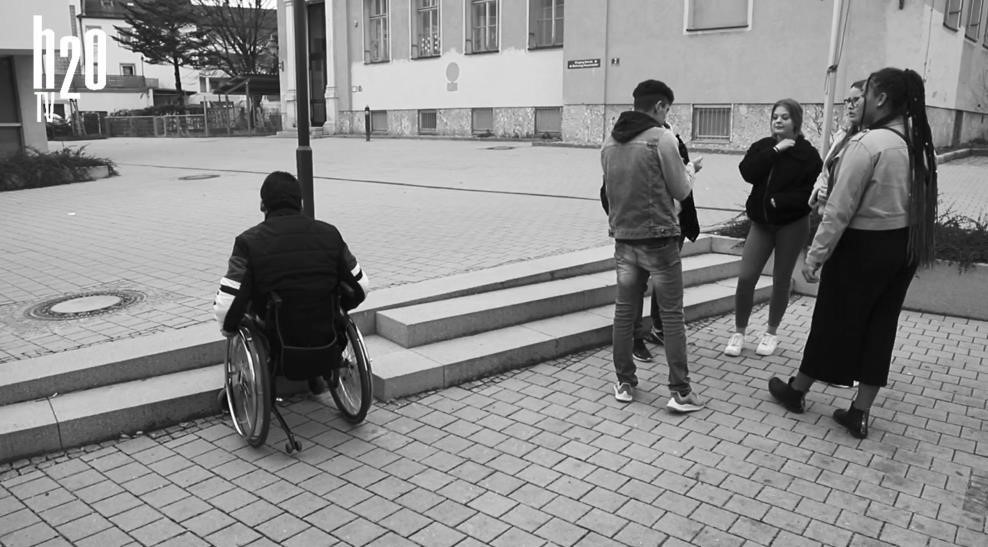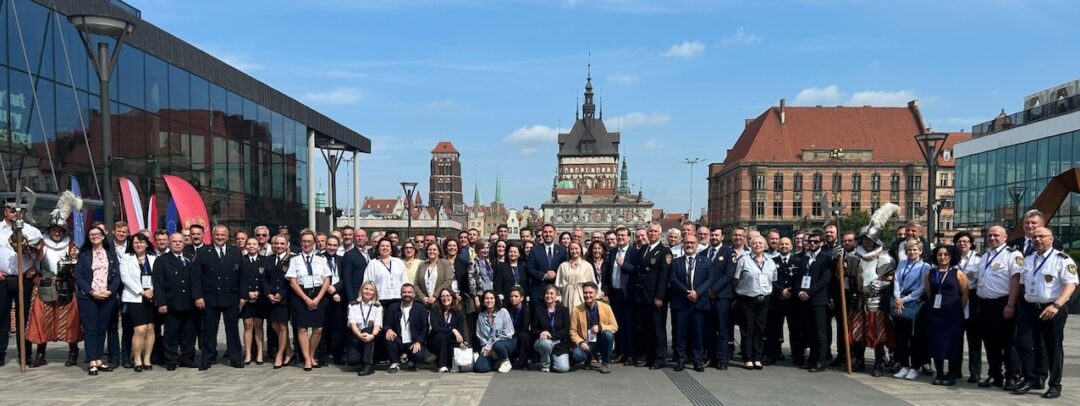Augsburg, Germany, October 2022 – A year after the conclusion of the LOUD project, through which nine European municipalities mobilised local youngsters who produced online campaigns promoting alternative discourses to intolerance and extremism, we’ve asked the project partners what has changed (or not) since then. Following Leuven in June, we met with a representative of the Municipal Office for Prevention of the City of Augsburg.
What initiatives have resulted from the LOUD project in your city?
Municipal Office for Prevention, City of Augsburg:
Through the LOUD project, a group of seven young residents from Augsburg made a video where they present different everyday situations in which they face racism and exclusion and encourage other young Augsburg residents to intervene when they witness such incidents. The five-minute film has two objectives: to show the challenges faced by these youngsters to viewers that have a different socio-economic background, and to bring viewers to reflect on their behaviour as regards discrimination and to act against it.
The message of the campaign is clear and powerful: “Don’t look away. Take action against discrimination.” It underlines that the principles of respect and fairness are key for a more inclusive society. The campaign addresses various dimensions of discrimination while directly engaging and involving youngsters. It is very powerful to hear their personal experiences.
Why was it important for you to participate in the LOUD project?
The City of Augsburg considers that preventing discriminatory behaviour, racism and exclusion is important. It conducted an evaluation of the local manifestations of daily racism and intolerance and the underlying factors of discrimination. The study also looked at who among the local stakeholders could be mobilised to tackle such phenomena. Furthermore, the municipality organised a focus group with professionals who work on issues of discrimination and radicalisation with local youngsters, which was a great opportunity for networking among local stakeholders on these topics. The focus session also brought valuable information and data that completed the needs assessment process. Following this, the municipality decided to work in partnership with a local association and to target its action on the issue of discrimination and racism amongst youngsters.
Why is it important to mobilise young people in fighting discriminatory violence?
Just as for adults, prejudice can be part of young people’s lives and experience of growing up. They can both be victims of discrimination and behave themselves in a discriminatory manner. Our project thus considered both sides of this issue. It sought to encourage young people to reflect about discrimination and racism, about their own behaviour, and what they can do when they see a youngster being targeted.
The video sought to reach as wide an audience as possible. We carried out the project during the Covid lockdowns, and it was an opportunity for outreach and for creating a safe space for young people to express themselves on the issue of discrimination.
> More information on the LOUD project





